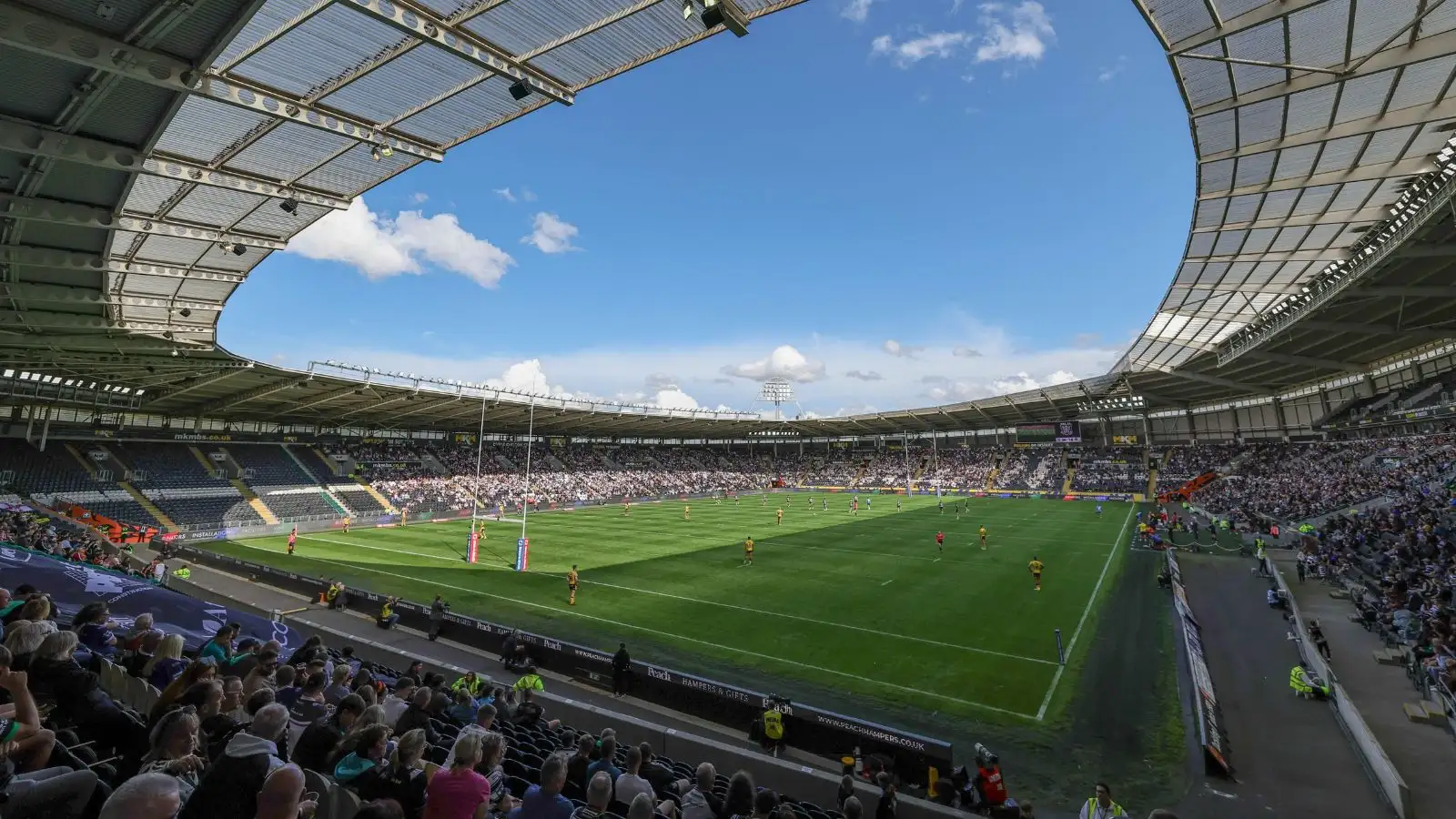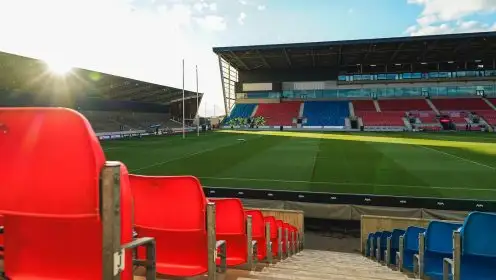RFL clarify new structures for 2015

The RFL have provided an illuminating clarification of how the sport of rugby league will be structured in the UK from 2015.
The structure of the top three leagues in Britain is to change drastically, with Super League and the Championship set to feature 12 teams each.
League One, the tier immediately below the Championship, will feature 14 teams. Those 14 will consist of the five teams relegated from the Championship this season, plus the eight remaining Championship One teams, and Coventry Bears.
There are also some interesting details about how Magic Weekend will work, as well as how the leagues will split into sub-divisions for the Super 8s section of the season. The Championship clubs will have their own version of the Magic Weekend, called the Summer Bash.
“The 12 Super League clubs play each other twice, home and away, during the regular season (22 fixtures) plus one fixture at Magic Weekend. The 12 Championship clubs will also play 23 matches, home and away plus one fixture at the Summer Bash,” the RFL website outlines.
“After playing 23 fixtures, the 24 Super League and Championship clubs will split into three groups – the Super 8s – based on league positions. The top eight will continue as Super League, the middle eight will be the Qualifiers and the third eight will be the Championship Shield.”
Clubs will play seven fixtures on a league basis in the Super 8s, with the structure detailed thus:
“Clubs which have performed strongest in their respective competitions in the regular season will be rewarded with four fixtures as follows: the top four Super League clubs will play four home matches; in the Qualifiers, the team finishing 9th and 10th in Super League and the top two teams from the Championship will have four home matches; and in the Championship Shield, clubs finishing the regular Championship season in 5th to 8th place will have four home fixtures.
“In Super League and Championship Shield, the competing clubs will carry over the points and scoring records from the regular season into the Super 8s. The Qualifiers will start with zero points because the eight clubs are drawn from two different competitions.”
The play-offs to decide the Super League champions will be determined by the top four clubs playing each other in semi-finals and a final. The first placed team will play the fourth-placed team, the second-placed will play the third.
As for the Qualifiers, or the second tier of eight teams after the split, the top three teams are guaranteed Super League status, whilst the fourth-placed side will play the fifth-placed in a so-called ‘Million Pound Game’, either at a neutral venue, or at the home ground of the fourth-placed team.
There will also be significant changes to the structure of the Challenge Cup, as welll as the introduction of a League One Cup Competition, which feature the 14 League 1 clubs plus the 2014 National Conference League Grand Final winners and the 2014 RFL Conference Challenge Cup winners.
Teams will now join the Challenge Cup at different rounds, depending on their league positions. The final will be played over the weekend of the August Bank Holiday.
“The 2015 Challenge Cup will be aligned to the new competition structure with the main change being that the eight clubs contesting the Super League play-offs in 2014 (and Super 8s from 2015 onwards) will enter the Challenge Cup at the sixth round stage,” the RFL website reveals.
“The 14 League 1 teams will enter at the third round stage, joining the 10 survivors from the 40 clubs invited to participate from the first round (12 ties). The 12 Championship clubs will then enter in Round 4, joining the 12 third round winners (12 ties).
“The bottom four Super League teams enter in Round 5, joining the 12 fourth round winners (eight ties). The top eight Super League teams enter in Round 6, joining the eight fifth round winners (eight ties).
“The sixth round is followed by the quarter-finals, semi-finals and final at Wembley Stadium.
“The 2015 Challenge Cup final will be played on the Saturday of the August Bank Holiday weekend.”
A full outline of the changes can be found at the RFL’s official website.
RFL chief executive Nigel Wood believes that the changes herald a new era for the sport.
“The changes will ensure that every minute of every match in every competition matters and are being implemented following the most comprehensive consultation process in the sport’s history,” he said.
“The return of promotion and relegation in a format that is financially sustainable for all clubs should ensure fans are entertained from February to October, with an exciting season punctuated by a series of world-class events commencing with the World Club Challenge and finishing at Old Trafford with the Super League Grand Final.”



